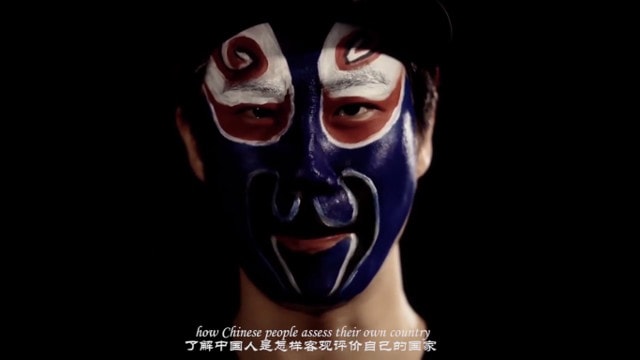How the Chinese system co-opted rap
Jeremy Corbyn worked with an unlikely mouthpiece to help him reach out to the youth of Britain during this year’s general election. Grime artist Stormzy, the 24-year-old South-London rapper, and the 68-year-old socialist leader make a somewhat peculiar pairing as they stood on stage together at rallies around the country. The model seemed to help his campaign but he may have been taking inspiration from another socialist society. In a bid to appeal more to the millennial generation, Chinese leadership has been gradually co-opting the hip-hop genre. Stars of the Chinese rap scene are Chengdu-based, Tianfu Incident.
Li Yiije, the star rapper of Tianfu Incident, is known by his stage name “Pissy”. He dresses in the rap staple uniform of baseball cap and baggy shirts and performs their expletive-laden songs. However, the content of these songs is what appeals to the Communist Youth League.
One of their more popular songs “Force of Red” attacks Taiwan’s president Tsai Ing-Wen. Li sings: “There’s only one China, HK, Taipei, they’re my fellas. Far away from us you forget how to act. Even dogs know to come home with a thankful bark.”
Their next song This is China aimed to explain to Westerners what China is really like. It was recorded in a studio paid for by the Youth League and soon after that, the band were sent to a disputed island in the South China Sea to record a music video.
“If the Party sticks to the old ways, it will only be more and more rejected by young people,” said Li, 23. “We need to stand up and say ‘Why can’t younger folks be more patriotic?’” he told reporters. “We need to step into this system. If the post-1990 generations don’t enter the system, what is our country going to do?”
Li has also said in interviews that the band has ties to many of China’s government departments and regularly dines with officials to exchange ideas. Although the band still touches on social problems of contemporary China, they have cleaned up their act on behalf of the authorities. “Critique with rationality has its place in our songs, but we despise those who keep complaining blindly,” Li told Reuters.
Xie Di, also known as Fat Shady, is another rapper from Chengdu whose nationalistic lyrics have brought him to wider attention. This time its foreigners who are in Shady’s cross hairs as he blasts: “stupid laowai”.
Although rap and hip-hop music in China emerged in the 1990s, it was with the advent of the internet, video-sharing sites and live streaming over the last few years that they started to gain any traction. By 2010, the genre was gaining in popularity but a 2015 clampdown on Western cultural influence impacted the Chinese rap scene and even saw hip-hop band In3 being held in custody after performing underground shows.
Today, however, rappers are singing more about partying than politics, which has helped lead to a resurgence of the genre. The authorities have released dozens of hip-hop songs, kicked off by the “Big Daddy Xi” rap and animated video featuring a smiling Xi Jinping that debuted at the end of 2015.
Livestreaming has seen performers gain hundreds of millions of followers from the comfort of their own bedroom and a new reality TV competition “The Rap of China” launched early this summer.
Critics claim that the show is too commercial, and the lyrics are too inoffensive to be classed as real rap music but it is watched by an audience of hundreds of millions of viewers each week and often trends on Chinese social media. Some contestants whose lyrics became too critical have been booted off the show but the authorities have done an impressive job of taking an art form that started out as critical of the system and transforming it into their very own mouthpiece.
So look out for Corbyn hosting “Britain’s Got Grime” on prime TV any time soon.


